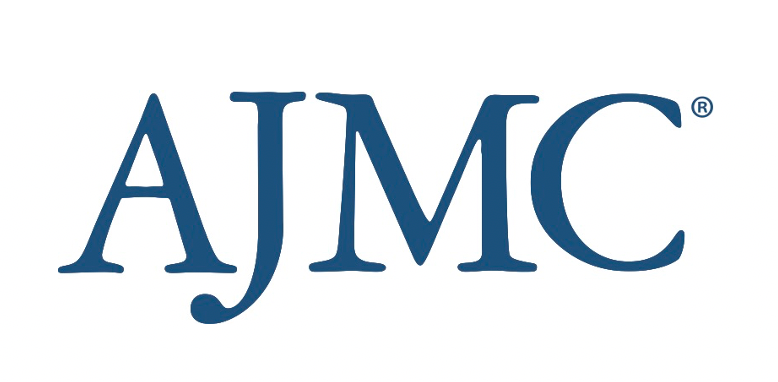
Policy
Latest News

Latest Videos

CME Content
More News

Initiatives that encourage or mandate collecting LGBTQ+ data could provide a plethora of benefits for clinicians and health care providers, from identifying disparities to creating stronger, more trusting relationships between LGBTQ+ patients and the health care system.

Going forward, the federal government must pay potentially hundreds of millions more to underfunded Native American tribes with health care programs; the FDA reversed its ban on Juul e-cigarettes yesterday as it reviews new court decisions and updated information; hospitals nationwide are experiencing workforce shortages as doctors and nurses increasingly leave the field.

The Bundled Payments for Care Improvement program was associated with improved quality of skilled nursing facilities in hospital referral networks for patients undergoing surgery for joint replacement.

US tuberculosis (TB) programs have helped to identify those with TB and latent TB infection and ensure they completed treatment; FDA advisers instructed that the COVID-19 vaccine Americans will receive in the fall should target the JN.1 strain; lawmakers are divided over the CMS nursing home staffing mandate.

On this episode of Managed Care Cast, Kristine Ashcraft, president and founder of YouScript, explains the importance of biomarker testing to distribute proper treatments to patients and minimize adverse events.

FDA advisers have voted against the use of MDMA as a post-traumatic stress disorder (PTSD) treatment; House members have expressed support for the 340B drug discount program but disagreed on whether it needs tighter regulation; a federal judge sided with SCAN Health Plan over CMS about incorrect 2024 Star Rating calculations.

Chief Health Equity Officer and Senior Vice President Aletha Maybank, MD, MPH, of the American Medical Association (AMA), delivered a powerful plenary session at the CMS Health Equity conference exploring the changes sparked by pivotal moments within the last 5 years.

The updated branding better reflects the group's mission of research and advocacy.

Expansion of Medicaid coverage will now include all-in-one mental health and substance use clinics; 61% of adults are estimated to have cardiovascular disease (CVD) by 2050; the FDA has taken a historic step in potential psychedelic drug approval.

Fauci’s first testimony since leaving government service set to address alleged misconduct and pandemic management; vaccine makers advised to focus on JN.1 and derived subvariants; AstraZeneca and Boehringer Ingelheim introduce $35 monthly cap on inhalers.

For June and Pride Month, we are bringing you our newest limited-edition podcast series. In this first episode, we speak with Lancaster, Pennsylvania, native and president of Lancaster Pride, Tiffany Shirley.

Presenters from CMS and the CDC explored the importance of standardizing health equity data collection at the 2024 CMS Health Equity Conference.

There has been a lack of visible progress from RECOVER, the $1.6 billion initiative launched by the National Institutes of Health to research long COVID; the CDC has detected a third human case of bird flu linked to sick dairy cows; small businesses and their workers are struggling to receive weight-loss drug insurance coverage.

Experts warn of insufficient support for patients amid surge in prescriptions for weight loss; new Florida law will allow C-sections in clinics; focus shifts to amending international health regulations for pandemic preparedness.

Patients struggle to afford glucagon-like peptide-1 (GLP-1) medications for diabetes; doctors see potential and pitfalls in new ChatGPT model’s humanlike conversations; Medicare payment reform efforts focus on inflation adjustments and payment model overhauls.

Kimberly Westrich, MA, chief strategy officer of the National Pharmaceutical Council, shares 3 key recommendations to improve the accuracy and quality of drug pricing data.


Prospective data from patients attending a rural practice in West Virginia between 2016 and 2023 show that a quality improvement program that followed guideline recommendations and was tailored to specific patient needs reduced preventable bleeds and lowered costs.

The results of T1International’s 2022 Out-of-Pocket Expenses survey highlight many huge inequities in the US and around the world relating to insulin and diabetes care supplies.

The US Senate hosted a panel addressing physician and health care shortages and efforts to increase minority representation in the medical field. An expert discussed initiatives to prevent senior homelessness. Advocates called for the repeal of the Comstock Act. Regulatory reforms are called for to improve rural cancer patients' access to pharmacies. Research reveals the impact of denials on patient access to immunology treatments.

Covering antiobesity medications like semaglutide could save Medicare around $500 million annually; preliminary CDC data showed a 3% decline in the number of US overdose deaths last year; the Biden administration recently announced the first national maternal mental health strategy.

In a joint letter addressed to Congress, Healthcare Across Borders, Take Back the Court Action Fund, and UltraViolet Action called out the resurgence of the Comstock Act, urging immediate action to repeal this century-old law that threatens reproductive rights and public health in the US.

At the spring conference of the New Jersey Health Care Quality Institute, speakers discussed how health policy, affordability, and transparency may play a role in voters’ decisions.

The senate hearing held by the US Senate Committee on Health, Education, Labor, and Pensions, led by Sen. Bernie Sanders (I, Vermont), chairman of the committee, and ranking member Sen. Bill Cassidy, MD, (R, Louisiana), addressed the critical issue of physician and health care worker shortages, as well as the maternal health crisis, in the US.

House lawmakers are expected to advance a contracting ban today on 5 Chinese research firms; US government officials temporarily relaxed strict guidelines on how laboratories handle, store, and transport H5N1 bird flu samples; a recent report found that the number of abortions occurring in the US continued to grow despite bans.
















